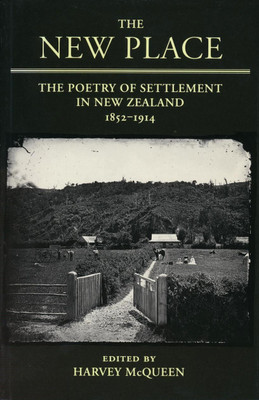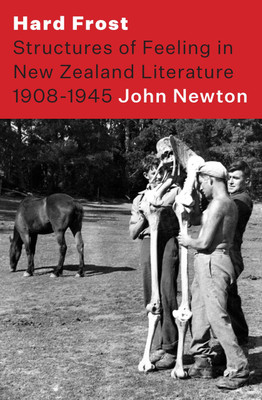Hide Description- Show Description+
2006
The literature of 'Maoriland', as New Zealand was popularly known from the 1880s to the beginning of the First World War, remains the black hole in New Zealand's literary memory. In the 1930s Allen Curnow and Denis Glover associated the Maoriland writers with sentiment, gentility and colonial deference. Today, 'Maoriland' evokes a world of saccharine fantasy in which Māori warriors in heroic attitudes and Māori maidens in seductive ones inhabited outmoded Victorian literary forms, while at the same time the business of settlement sidelined and dispossessed actual Māori.
Maoriland: New Zealand Literature 1872–1914 argues that such glib dismissals of the past do disservice to the present, seeing in the writing of Maoriland something more complex and more diverse: the beginnings of a self-consciously New Zealand literature, which adapts European literary forms to the new place. In this period are the origins of much of New Zealand's progressive social legislation, the roots of modern feminism, the establishment of ways in which we regard the natural world, and the manufacture of the defining roles by which we still enact our bicultural relations.
This is the first book to examine a crucial period in the shaping of New Zealand literature. It connects the cultural forms of Maoriland to both larger patterns of empire and contemporary criticism, looking at the writing in all its complexities, contradictions and evasions.
'As cultural history, this is enlightening, detailed, judicious and a damned good read.' —Nicholas Reid, NZ Listener
'Maoriland was a book begging to be written and Jane Stafford and Mark Williams have done a fine job in cultural recovery and reconstruction, investigating the literature of the period from the 1880s till the beginning of World War I, the heyday of the term's adoption as self-description by Pākehā New Zealanders.' —Terry Sturm, Dominion Post
'By revisiting these writers, and opening up their works, this timely study both fills a gap as a general study, and establishes an under-read and undervalued period in our cultural history as a necessary lens for viewing what followed in Curnow's generation through to the present.' Jeffrey Paparoa Holman, the Press
'Stafford and Williams make a good case for their chosen writers, surveying their literary and biographical contexts and leaving you keen to seek out more of the seldom-published texts they sample here.' —Mark Houlahan, Metro
'In addition to being eminently readable and often highly entertaining, Maoriland is politically relevant and genuinely innovative in its claims, making it a welcome and necessary addition to New Zealand literary history.' —Clare Barker, University of Leeds
'an illuminating reappraisal of a crucial period in New Zealand's literary history and an important step towards cultural maturity' —Kirstine Moffat, JOURNAL OF NEW ZEALAND LITERATURE 24:1 (2006)
'one of the most stimulating and intellectually satisfying contributions to our literary history in the past two decades' —James Smithies, JOURNAL OF NEW ZEALAND HISTORY
JANE STAFFORD teaches in the School of English, Film, Theatre and Media Studies at Victoria University of Wellington. Her current research focuses on the literature of the late colonial period and her recent publications include the coedition Katherine Mansfields Men.
MARK WILLIAMS is associate professor of English at the University of Canterbury in Christchurch. He is the author of Leaving the Highway, Patrick White and coeditor of several anthologies of New Zealand poetry, including An Anthology of New Zealand Poetry in English.






